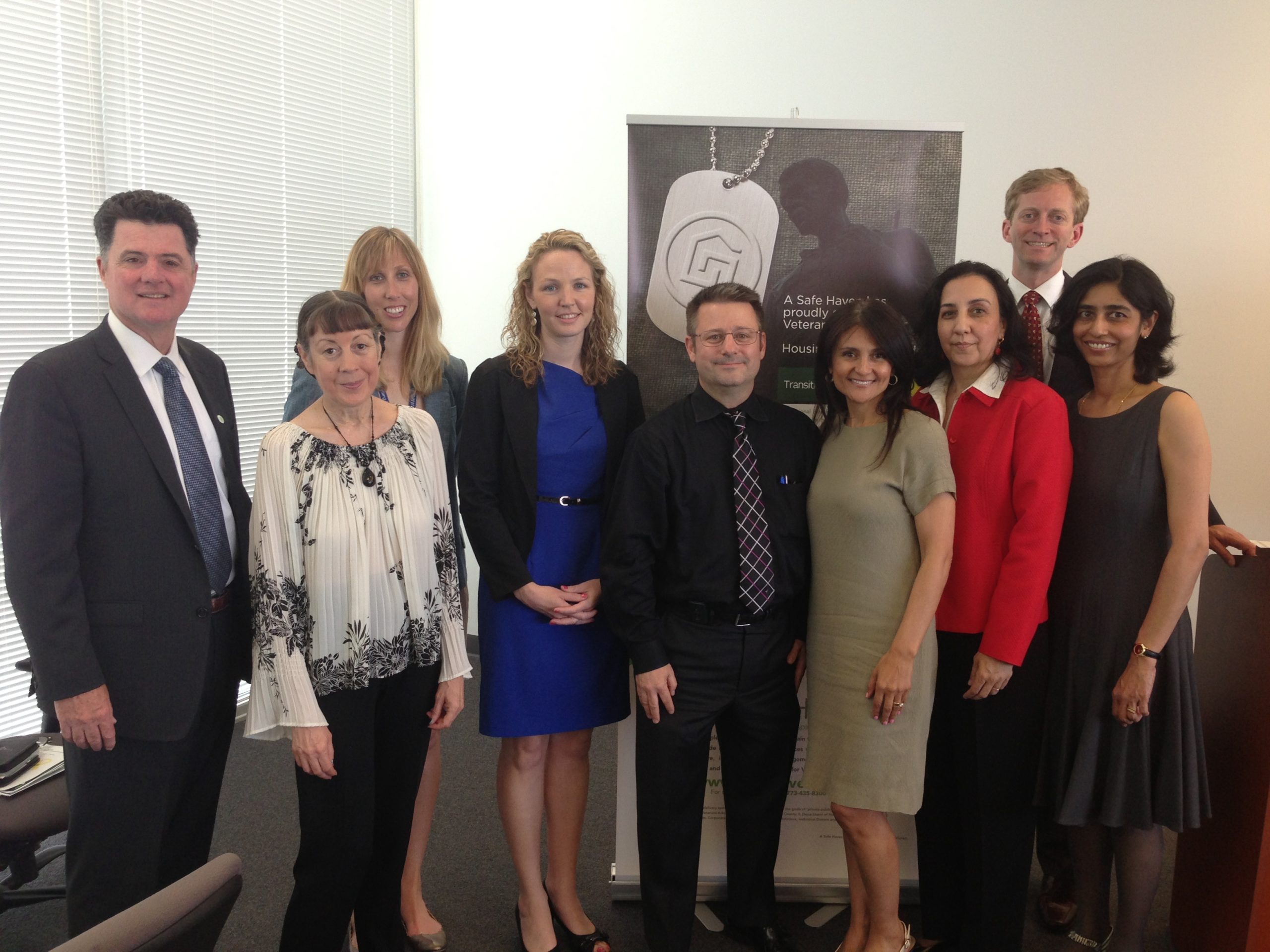
Women Veterans’ Health Program Hosted by A Safe Haven and the Union League Club of Chicago
Program Raised Awareness of Women Veterans’ Health Post-Military Service
May 21, 2013, Chicago, IL—A Safe Haven Foundation and the Union League Club of Chicago Military Affairs Subcommittee’s Yellow Ribbon Council hosted a program yesterday to raise awareness of women veterans’ health post-military service. Representatives from the Department of Veterans Affairs, the City of Chicago, and the Rush University Medical Center discussed the effects Post Traumatic Stress Disorder (PTSD), Traumatic Brain Injury (TBI), Military Sexual Trauma (MST) and homelessness have on returning women veterans.
“The Union League Club of Chicago’s Yellow Ribbon Council is so thankful to the HHS Office of Women’s Health, A Safe Haven Foundation, the Jesse Brown VA Medical Center, the Edwards Hines, Jr. VA Hospital and Rush University for their support of this important and timely program on issues impacting our women veterans and women currently serving in our military,” says Kevin Hull, Chair of The Union League Club of Chicago Military Affairs Subcommittee’s Yellow Ribbon Council.
Erica Borggren, Director of the Illinois Department of Veterans, spoke about how lack of childcare and a male-dominated atmosphere alienate women from using VA services. An even bigger issue facing women Veterans, Borggren said, is Military Sexual Trauma (MST). Women who experience MST were nine times more at risk for PTSD and cases of MST continue to grow, with one in five women reporting MST, according to the National Coalition for Homeless Veterans.
“I’m grateful for the Illinois Department of Veterans Affairs Director, Erica Borggren, for her keynote address and call-to-action to support the state-wide Illinois Joining Forcing initiative,” says Dr. Neelum Aggarwal of Rush University Medical Center.
Seven percent of the nation’s homeless veteran population is comprised of women, according to the VA and since 2009, there’s been more than a 2 percent increase in the number of homeless veterans in shelters, according to the U.S. Department of Housing and Urban Development. The risk of women vets becoming homeless is four times greater than men.
“It couldn’t happen at a more important time,” says Neli Vazquez-Rowland, co-founder and President of A Safe Haven Foundation. “This is a powerful launch to a campaign that will raise awareness of PTSD, MST and the other traumatic issues facing our women veterans. I invite anyone who feels a personal connection to this cause to join us in this endeavor.”
